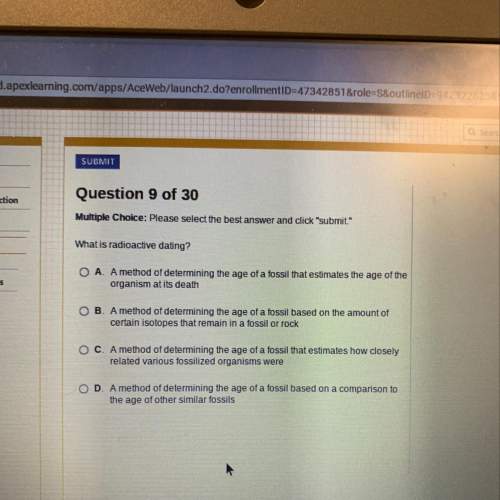
Biology, 07.05.2021 22:10 elijahdouglass00
Memories of a Memory
Have you ever witnessed something amazing, shocking or surprising and found when describing the event that your story seems to change the more you tell it? Have you ever experienced a time when you couldn't really describe something you saw in a way that others could understand? If so, you may understand why some experts think eyewitness testimony is unreliable as evidence in scientific inquiries and trials. New insights into human memory suggest human memories are really a mixture of many non-factual things.
First, memory is vague. Imagine your room at home or a classroom you see every day. Most likely, you could describe the room very generally. You could name the color of the walls, the floors, the decorations. But the image you describe will never be as specific or detailed as if you were looking at the actual room. Memory tends to save a blurry image of what we have seen rather than specific details. So when a witness tries to identify someone, her brain may recall that the person was tall, but not be able to say how tall when faced with several tall people. There are lots of different kinds of "tall."
Second, memory uses general knowledge to fill in gaps. Our brains reconstruct events and scenes when we remember something. To do this, our brains use other memories and other stories when there are gaps. For example, one day at a library you go to quite frequently, you witness an argument between a library patron and one of the librarians. Later, when telling a friend about the event, your brain may remember a familiar librarian behind the desk rather than the actual participant simply because it is recreating a familiar scene. In effect, your brain is combining memories to help you tell the story.
Third, your memory changes over time. It also changes the more you retell the story. Documented cases have shown eyewitnesses adding detail to testimony that could not have been known at the time of the event. Research has also shown that the more a witness's account is told, the less accurate it is. You may have noticed this yourself. The next time you are retelling a story, notice what you add, or what your brain wants to add, to the account. You may also notice that you drop certain details from previous tellings of the story.
With individual memories all jumbled up with each other, it is hard to believe we ever know anything to be true. Did you really break your mother's favorite vase when you were three? Was that really your father throwing rocks into the river with you when you were seven? The human brain may be quite remarkable indeed. When it comes to memory, however, we may want to start carrying video cameras if we want to record the true picture.
Which phrase from the text most clearly explains the main idea of the third paragraph? (5 points)
Group of answer choices
Memory uses general knowledge
Other memories and other stories
When telling a friend about the event
Rather than the actual participant

Answers: 3


Another question on Biology

Biology, 21.06.2019 19:00
Select the correct answer.which scenario describes unethical lab behavior? o a. danny stores the chemicals required for his experiment in flasks and beakers.b.anna publishes the results of her experiment on the growth rate of saplings.c.jason repeatedly runs an experiment until he gets the results he desires.d. mia records her observations of an experiment precisely and accurately.
Answers: 1

Biology, 22.06.2019 04:30
What are the three types of counseling established by marine corps policy?
Answers: 1


Biology, 22.06.2019 17:30
Sally, age 3 months, has a moist, red, vesicular rash on her cheeks, the backs of her hands, and her arms. her mother said sally was constantly trying to scratch the rash and often has difficulty sleeping. her father has a family history of allergic rhinitis and asthma. discussion questions. 1. review atrophic dermatitis from chapter 3 and discuss the pathophysiology of sally’s symptoms. 2. why is the father’s medical history significant, and what can sally expect as she grows up? 3. discuss the need to limit scratching, and describe practical methods to achieve this.
Answers: 3
You know the right answer?
Memories of a Memory
Have you ever witnessed something amazing, shocking or surprising and found w...
Questions

Mathematics, 04.04.2021 18:00


Mathematics, 04.04.2021 18:00

Mathematics, 04.04.2021 18:00



Mathematics, 04.04.2021 18:00


History, 04.04.2021 18:00


Social Studies, 04.04.2021 18:00

Mathematics, 04.04.2021 18:00

Mathematics, 04.04.2021 18:00


Mathematics, 04.04.2021 18:00



English, 04.04.2021 18:00

History, 04.04.2021 18:00

English, 04.04.2021 18:00




